PM Street Vendor's AtmaNirbhar Nidhi (PM SVANidhi)
Updated on : 21 December, 2024
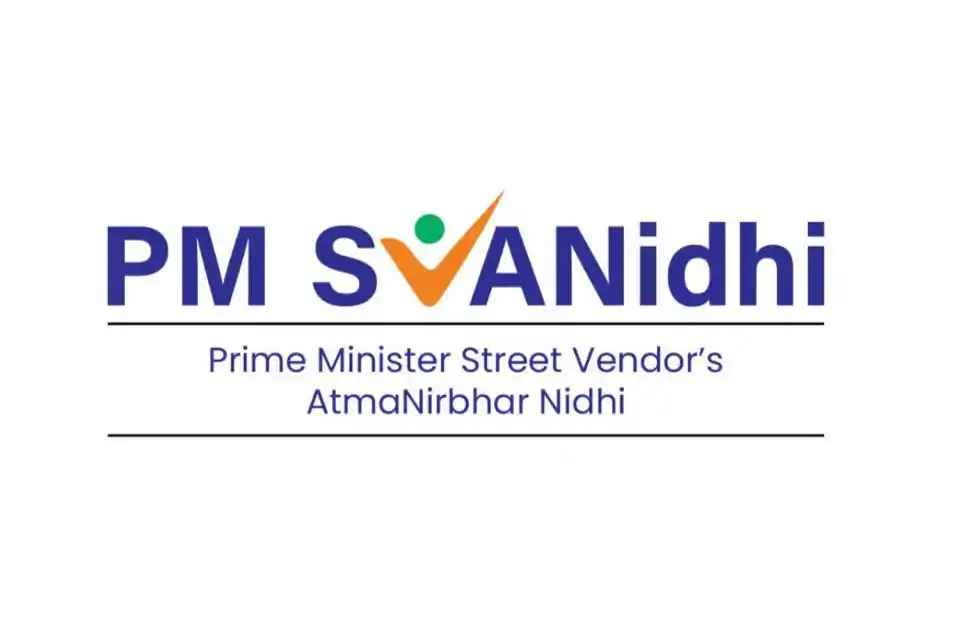
Image Source: facebook.com
The PM Street Vendor's AtmaNirbhar Nidhi (PM SVANidhi) is a significant initiative by the Government of India aimed at supporting street vendors who have faced economic hardships due to the COVID-19 pandemic. Launched on June 1, 2020, as part of the broader Atmanirbhar Bharat Abhiyan, this scheme provides financial assistance to help street vendors regain their livelihoods.
The Need for PM SVANidhi
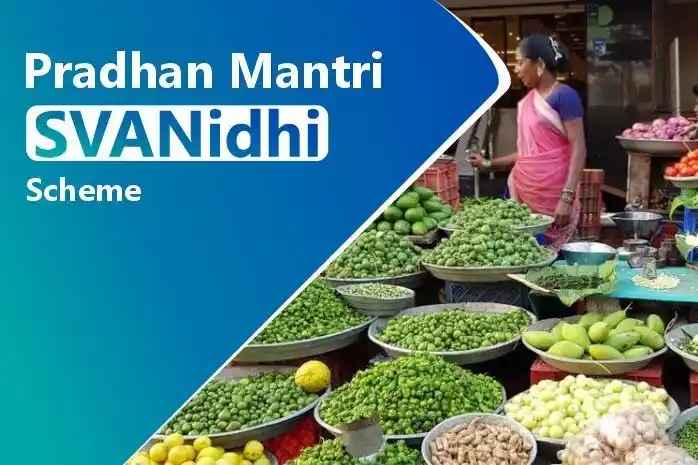
Image Source: amazonaws.com
Street vendors form a crucial part of India's urban economy, providing affordable goods and services to millions. However, the COVID-19 pandemic severely impacted their livelihoods due to lockdowns and restrictions. According to estimates, there are approximately 10 million street vendors in India, contributing significantly to urban informal employment.
The Street Vendors (Protection of Livelihood and Regulation of Street Vending) Act, 2014 was enacted to safeguard the rights of street vendors and regulate their activities. Despite this legislation, many vendors struggled with limited access to credit and financial support, particularly during the pandemic. Recognizing this gap, the government introduced PM SVANidhi to provide necessary financial assistance and promote self-reliance among street vendors.
Objectives
The primary objectives of PM SVANidhi are:
- Financial Support: To facilitate affordable working capital loans up to ₹10,000 for street vendors affected by the pandemic.
- Encouraging Digital Transactions: To promote cashless transactions by providing incentives for digital payments.
- Timely Repayment Incentives: To encourage regular repayment of loans through interest subsidies and cashback rewards.
- Reviving Livelihoods: To help street vendors resume their businesses and regain their economic footing post-pandemic.
Eligibility of States/UTs
The PM SVANidhi scheme is applicable in states and union territories (UTs) that have notified rules under the Street Vendors Act. This ensures that only those areas with a regulatory framework for street vending can participate in the scheme. Notably:
- States/UTs must have a system in place for identifying and supporting street vendors.
- Meghalaya is an exception as it has its own state-specific street vendor legislation.
Eligibility Criteria for Beneficiaries
To qualify for PM SVANidhi, beneficiaries must meet the following criteria:
-
Active Street Vendors: Vendors must have been engaged in vending activities on or before March 24, 2020.
-
Identification: Eligible vendors should possess a Certificate of Vending or an Identity Card issued by Urban Local Bodies (ULBs). Alternatively, they can be identified through surveys conducted by ULBs or Town Vending Committees (TVCs).
-
Operational in Urban Areas: The scheme is specifically targeted at urban street vendors.
Brief Details of the Scheme
Loan Structure
PM SVANidhi offers a structured loan product designed specifically for street vendors:
- Loan Amount: Up to ₹10,000 for initial loans.
- Tenure: The loan must be repaid within one year.
- Collateral-Free Loans: No collateral is required to secure these loans.
Rate of Interest
The interest rate on loans under PM SVANidhi is designed to be affordable:
- The effective interest rate is set at approximately 7% per annum, with an interest subsidy provided for timely repayments.
- The subsidy is credited back to the borrower's account quarterly.
Data in Public Domain
The government has made significant efforts to ensure transparency regarding PM SVANidhi. Key data points include:
- As of recent reports, over 70 lakh loans have been disbursed under the scheme.
- The total value of loans sanctioned exceeds ₹9,100 crore, benefiting more than 53 lakh street vendors.
- The persistency ratio for loan repayments indicates a high level of compliance among beneficiaries, with around 68% repaying their first loan and qualifying for subsequent loans.
Pre-Application Steps
- Understand the loan application requirements
Properly understand the information documents required to fill the Loan application form (LAF) for the Scheme. Keep all the information ready before you start the application process.
View/Download Form- Make sure your mobile number is linked to your Aadhaar
You are requested to make sure that your mobile phone is linked to your aadhaar number.This will be required for your e KYC/Aadhaar validation during online application process. It will also help you to get letter of Recommendation from ULB (in case required). It will also help you avail future benefits under Government welfare schemes.
It is understood from UIDAI officials that for updating mobile numbers, only a form has to be filled and no additional document is required. A link to UIDAI portal where you can find details of the nearest Aadhaar centre is provided below.
- Check your eligibility status as per scheme Rules ion to be kept ready
You will fall in one of the following 4 categories of Street vendors. Check your status and the documents/ information which you need to keep ready.
| Category | Vendor Status | Action required by Vendor |
|---|---|---|
| A | Vendor has been covered in the survey of Urban Local Body (ULB) and have been issued Certificate of Vending (CoV) or Identity card (ID Card) by ULB or the Town Vending Committee | Check your name in the survey list on the portal and note your Survey reference Number (SRN). Keep a copy of your CoV or ID card ready for uploading during application process |
| B | Vendor has been covered in the survey of Urban Local Body (ULB) and has not been issued Certificate of Vending or Identity card by the ULB or the Town Vending Committee | Check your name in the survey list on the portal and note your Survey reference Number (SRN). A Provisional CoV shall be generated for you by the system while making online application |
| C | Street vendors, left out of the ULB-led identification survey or who have started vending after completion of the survey. | 2 sub-categories: C1 - Vendor has been issued Letter of Recommendation by ULB/ TVC. C2 - Vendor has not been issued LoR. Vendor to declare: i. Vendor has received One Time assistance during Covid lockdown ii. Vendor is a member of the vending/Hawkers association. |
| D | Street vendors of surrounding development/ peri-urban / rural areas vending in the geographical limits of the ULBs (not covered in Survey) | 2 sub-categories: D1 - Vendor has been issued Letter of Recommendation by ULB/ TVC. D2 - Vendor has not been issued LoR. Vendor to declare: i. Vendor has received One Time assistance during Covid lockdown ii. Vendor is a member of the vending/Hawkers association. |
Application Process
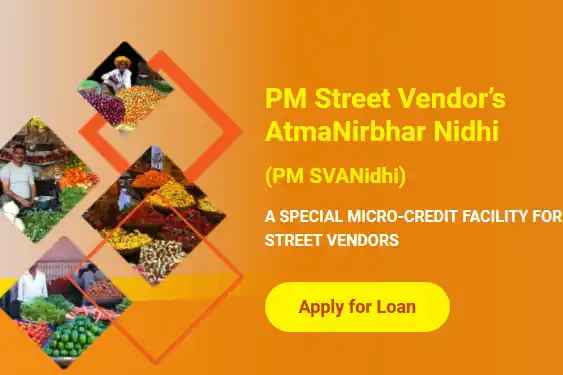
Image Source: twitter.com
The application process for PM SVANidhi has been streamlined to ensure accessibility for all eligible vendors:
Step-by-Step Application Process
-
Documentation Preparation: Vendors need to gather necessary documents such as identity proof, address proof, and evidence of vending activity.
-
Online Application: Applications can be submitted through:
-
The official PM SVANidhi Portal
-
The Ministry of Housing and Urban Affairs (MoHUA) has developed a mobile application available for Android devices.
Download the MoHUA App on Google Play
- Common Service Centers (CSCs) located across urban areas.
-
Verification Process: After submission, local authorities will verify applications based on eligibility criteria.
-
Loan Disbursement: Upon approval, the loan amount is disbursed directly into the applicant's bank account.
-
Repayment Mechanism: Vendors can repay their loans through various channels including online banking and mobile wallets.
How to Check PM Svanidhi’s Loan Status Online?
- Visit the Official PM SVANidhi Portal
- Open the official website PM SVANidhi Portal.
- Login
-
Click on the Login option available on the homepage.
-
Enter your registered mobile number and complete the OTP verification.
- Select the Loan Status Option
- After logging in, navigate to the Application Status section.
- Enter your Loan Application ID or other relevant details as requested.
- View Status
- Once you submit the required information, the current status of your loan application will be displayed. This may include details like approval, processing, or disbursement status.
Benefits of PM SVANidhi
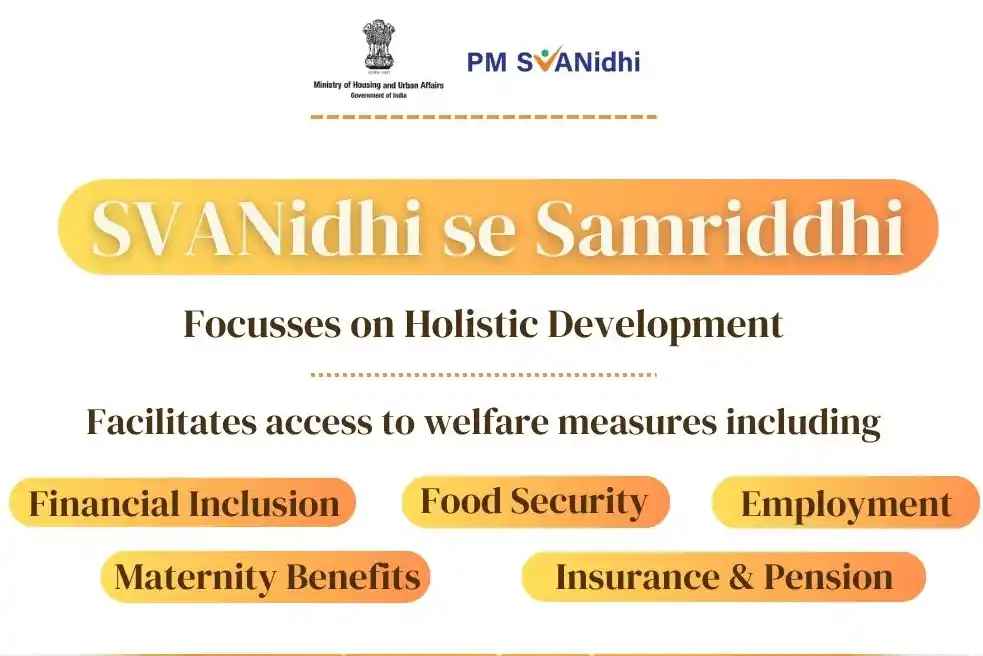
Image Source: twitter.com
The benefits provided under PM SVANidhi are extensive and cater specifically to the needs of street vendors:
-
Financial Assistance: Street vendors receive immediate financial support through collateral-free loans that enable them to restart their businesses without incurring debt burdens.
-
Interest Subsidy: The provision of a 7% interest subsidy encourages timely repayments and reduces overall borrowing costs for beneficiaries.
-
Promotion of Digital Transactions: Vendors are incentivized to adopt digital payment methods through cashback rewards ranging from ₹50 to ₹100 per month based on transaction volumes. This not only modernizes their business practices but also enhances financial inclusion.
-
Capacity Building Programs: Alongside financial support, PMSVANidhi includes training programs aimed at improving business skills among street vendors. These programs cover aspects such as digital payments, customer service enhancement, and inventory management.
-
Social Security Linkages: Through initiatives like "Svanidhi se Samruddhi," beneficiaries can access various social security schemes related to health insurance, pensions, and other welfare benefits aimed at improving their overall well-being.
Challenges and Considerations
Despite its benefits, several challenges persist for street vendors even under PMSVANidhi:
-
Bureaucratic Hurdles: Some vendors face difficulties navigating bureaucratic processes when applying for loans or seeking necessary documentation.
-
Lack of Awareness Among Vendors: Many street vendors remain unaware of the scheme or how to apply for it, limiting its reach and effectiveness.
-
Economic Instability in Urban Areas: Ongoing economic challenges due to fluctuating demand and competition from larger businesses continue to pose threats to street vendor livelihoods.
Success Stories
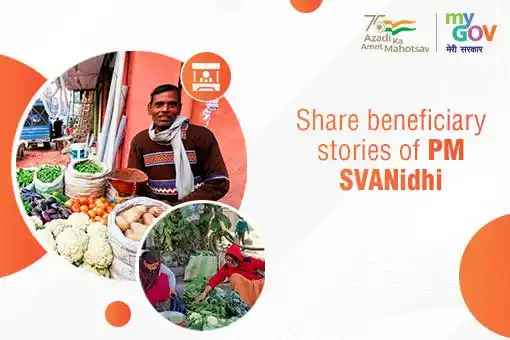
Image Source: mygov
Numerous success stories have emerged from the implementation of PMSVANidhi:
Case Studies of Beneficiaries
- Ramesh Kumar - A Street Food Vendor in Delhi
Ramesh Kumar availed himself of a loan under PMSVANidhi. With this financial support, he was able to purchase new cooking equipment and expand his menu offerings. As a result, his sales increased significantly, allowing him to repay his loan within six months while also saving for future investments.
- Sita Devi - A Flower Seller in Varanasi
Sita Devi used her loan from PMSVANidhi to purchase fresh flowers in bulk at lower prices. This strategy not only improved her profit margins but also enabled her to hire an assistant during peak seasons. Sita’s story exemplifies how access to credit can transform small businesses.
11. Future Prospects
The future prospects for PMSVANidhi look promising as it continues to evolve:
-
Expansion Plans for PM SVANidhi: The government aims to expand the reach of PMSVANidhi by increasing awareness campaigns and simplifying application processes further.
-
Integration with Other Government Initiatives: PMSVANidhi could be integrated with other government initiatives aimed at promoting entrepreneurship and skill development among marginalized groups.
Conclusion
The PM Street Vendor's AtmaNirbhar Nidhi (PM SVANidhi) stands as a beacon of hope for millions of street vendors across India who were adversely affected by the COVID-19 pandemic. By providing essential financial support and promoting self-reliance through skill development and digital transactions, this scheme has not only helped revive livelihoods but also empowered a traditionally marginalized sector within India's economy.
With initiatives like PM SVANidhi paving the way for a more inclusive financial ecosystem, we can look forward to a future where every street vendor has the opportunity to thrive and succeed in their entrepreneurial endeavors.



